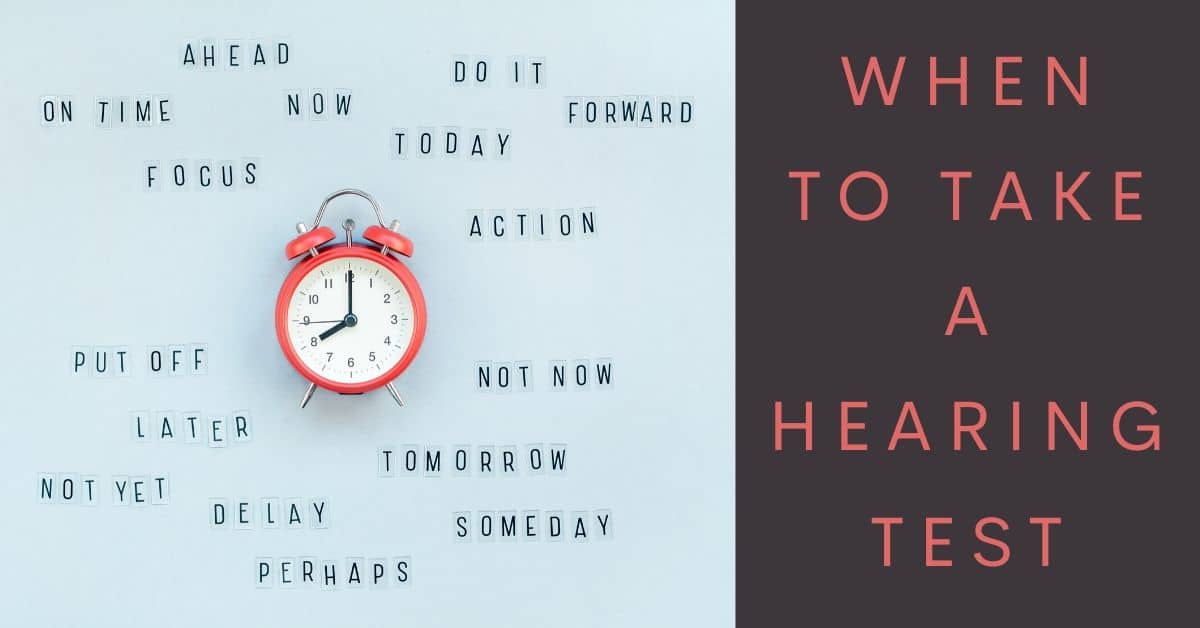
Hearing loss affects roughly 48 million Americans of all ages. If you’re not able to hear when someone calls your name from another room and you can’t follow conversations, then you’ve noticed the effects of hearing loss. You may be missing out on many sounds around you, have a hard time interacting with friends and enjoying social events, and feel unmotivated to stay socially active. Hearing loss is treatable, and there’s no reason to live with hearing loss, or become socially isolated. Here are six signs it’s time to take a hearing test.
Following Conversations
One of the first signs of hearing loss is having a hard time following conversations. Have you been asking people to repeat what they said, or catch yourself saying “what did you say”? You may feel as though everyone around you is speaking very softly, or that their voices seem muffled. The hardest voices to hear may be those of your grandchildren, whose higher pitched voices are harder to understand. When you can’t follow conversations, you struggle to maintain close relationships with your family and friends. You miss out on important moments in their lives, and don’t enjoy the same level of social support. Your family also feels the negative effects of your hearing loss, and they miss having easy conversations with you.
Hearing on the Phone
If following conversations in person is a challenge, hearing on the phone may be almost impossible. Hearing loss makes it harder to hear on the phone, especially if you’re in a place with some background noise. Have you been avoiding answering the phone when it rings? Rather than avoiding talking to your loved ones, or missing important phone calls, take a hearing test and find out how you can get back to hearing on the phone.
Hearing in Background Noise
Another early sign of hearing loss is struggling to hear in places with lots of background noise. Places with a lot of background noise include crowded restaurants, cars and planes, or a noisy family dinner. As you lose the ability to hear certain sounds, your brain has a hard time identifying speech sounds, and separating the sounds you want to hear from the distracting background noise. Even if you can hear clearly in the quiet of your home, you may have a hard time hearing in background noise. This is a sign of hearing loss, and a good indication that you should take a hearing test.
Missing the Soft Sounds
When was the last time you heard birds chirping outside? Can you hear the hum of the air conditioner, or hear the ticking of the clock in your living room? Other sounds you might be missing include your alarm clock, or notification sounds on your cell phone. If you’ve been missing the soft sounds, you should take a hearing test. When you have been missing the soft sounds in your environment, schedule a hearing test.
Turning Up the Volume
Have you been reaching for the volume controls, and turning up the volume on the TV, radio, or phone? Does your family complain that the TV is far too loud? As you lose some of your hearing range, it becomes more difficult to make out what’s been said, and you turn up the volume to compensate for your hearing loss. However, making sounds louder doesn’t make them any clearer, and taking a hearing test is the first step in treating hearing loss and regaining clarity.
Tinnitus
If you’ve been hearing a phantom ringing, buzzing, or whistling sound in your ears, it’s time to take a hearing test. Tinnitus, the sound you hear when everything around you is quiet, is an early warning sign of hearing loss. Exposure to very loud noises can cause tinnitus, and this ringing in your ears can make it hard to focus on tasks, enjoy the quiet, or get a good night’s sleep. Many of our top hearing aids have tinnitus therapy programs to help you find relief from your tinnitus.
When to Take a Hearing Test
Do these signs of hearing loss sound familiar? If you can’t hear as well as you used to, it’s time to take a hearing test. Visit us today and find out what hearing aids can do for you.
